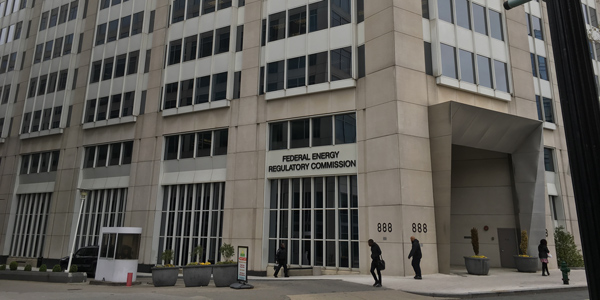By Rory D. Sweeney
FERC on Tuesday approved PJM’s proposed rules for implementing restrictions imposed on energy efficiency resources (EERs) by state or local regulators that are authorized by the commission to restrict their sale in the RTO’s markets (ER18-870).
The commission simultaneously denied rehearing of a related order it issued in December that asserted the commission had “exclusive authority” over the participation of energy efficiency in wholesale markets while preserving a carveout it approved earlier for Kentucky utilities (EL17-75-001).
The order was prompted by a June 2017 petition by Advanced Energy Economy for a declaratory order that FERC — and not state or local regulators — has authority over how EERs participate in wholesale markets. FERC sided with AEE in the December order. (See FERC Claims Jurisdiction on EE, OKs Ky. Opt-Out.)
PJM Plan
PJM’s plan creates a verification process to ensure that all EERs offered and cleared in the RTO’s capacity market comply with any restrictions that may be imposed by a relevant electric retail regulatory authority (RERRA). It also helps sellers of EERs that cleared in a prior PJM capacity market auction but are subsequently restricted from participation in the market by a RERRA.
The RTO will post a FERC-authorized notice of a RERRA’s restrictions. Sellers in the capacity market will be required to itemize EERs located within a RERRA’s boundaries and submit the list to PJM, which will distribute lists of EERs to relevant electric distribution companies. The EDCs will be required to proactively affirm compliance with PJM before the EERs can participate.
EERs are different from demand response resources, PJM explained, because they are eligible to participate unless a RERRA restricts them. In contrast, DR is ineligible to participate unless a RERRA affirmatively permits them.
EERs that are made ineligible by RERRA regulations after they’ve cleared an auction may obtain replacement capacity or elect to be relieved of the capacity commitments.
“Such a rule protects sellers of EERs from being assessed deficiency charges or Capacity Performance nonperformance charges,” the commission explained.
Rehearing Denial
Several parties — including FirstEnergy, several public power groups and several Midwestern transmission and distribution utilities — requested rehearing or clarification of the commission’s December ruling on exclusive authority. They alleged that FERC overreached in pre-empting state authority to oversee EERs.
“We find that the commission’s authority to determine which resources are eligible to participate in the wholesale markets is a fundamental component of the regulation of the wholesale markets,” the commission responded, drawing a distinction between state authority to procure renewable energy and FERC’s authority over EERs.
“Our determinations here do not prevent states from regulating retail sales of electricity, even when such regulation incidentally affects areas within the commission’s domain,” the commission said.
However, the commission said it also disagreed with American Municipal Power, the American Public Power Association, National Rural Electric Cooperative Association and Public Power Association of New Jersey “that state and local restrictions on EER participation in wholesale markets is a valid exercise of state and local authority over retail electric service. A provision directly restricting retail customers’ participation in organized wholesale electricity markets, even if contained in the terms of retail service, nonetheless intrudes on the commission’s jurisdiction over the wholesale markets.”
FERC specifically declined to address whether its conclusion is based on the “field pre-emption” or “conflict pre-emption” under the Supremacy Clause of the Constitution.
“Because we conclude that the question of which resources may participate in wholesale markets is fundamental to the regulation thereof, we need not specifically address whether Congress ‘occupied’ the relevant field or whether a state law arrogating that authority to the state merely ‘stands as an obstacle’ to the commission’s responsibilities under the [Federal Power Act],” FERC explained.




